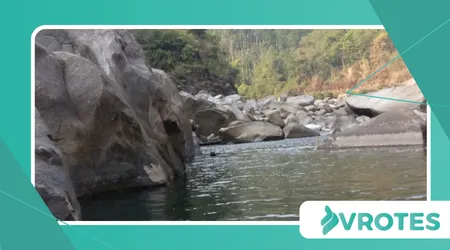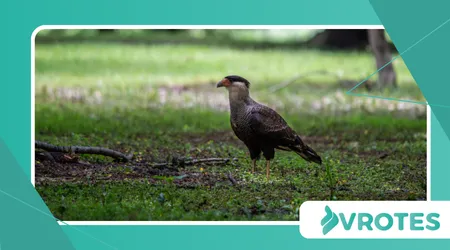Micro-dosing Nature: Short Outdoor Breaks for Mental Clarity

Micro-dosing Nature. The relentless pace of modern life, dominated by screens and deadlines, leaves many professionals feeling perpetually drained.
Anúncios
A significant and growing body of evidence suggests our cognitive resilience is directly linked to nature, yet finding hours for a ‘digital detox’ feels impossible.
This is where the powerful, accessible concept of Micro-dosing Nature intervenes, offering short, potent outdoor breaks as a necessary wellness strategy.
It’s not about escaping to a remote forest; it’s about strategically integrating natural moments into your busiest days.
What is the Scientific Rationale Behind Short Nature Breaks?
This is a deliberate, small immersion into a natural setting. It leverages the restorative properties of greenery and open space to quickly reset a taxed mind.
Anúncios
Think of it as a cognitive compression session for your brain’s attention networks. The goal is rapid, measurable recovery without disrupting your daily workflow.
People intuitively know that a change of scenery helps, but the speed of the effect is surprising.
The science of Attention Restoration Theory (ART) explains that nature engages ‘involuntary attention,’ which requires little effort.
This passive engagement allows the brain’s directed-attention system, heavily used in focus and problem-solving, to fully recover. It’s a genuine brain hack for mental fatigue.
Even a brief encounter with natural elements triggers a shift from the sympathetic ‘fight or flight’ nervous system to the parasympathetic ‘rest and digest’ state.
This internal transition is critical for reducing chronic stress and improving overall health.
How Do Just 10 Minutes Outdoors Boost Focus and Creativity?
The key lies in consistency and focused presence during these short intervals. Research indicates a minimal time commitment can yield maximum results for cognitive function.
You don’t need a full hour to feel the benefit; small, repeated doses are surprisingly effective.
A landmark study published in the Frontiers in Psychology in 2019, by researchers at the University of Michigan, found that simply spending 20 minutes in nature was sufficient to significantly lower cortisol levels, a primary biomarker for stress.
++ Unwinding Rituals to End Your Day on a Peaceful Note
This confirms that short breaks actively combat the physiological effects of modern pressure.
Imagine your focus like a smartphone battery draining throughout the day with demanding apps. A full recharge takes time, but a quick plug-in during a brief pause keeps you functional.
Micro-dosing Nature is that essential, efficient power-up for your mind. It prevents total cognitive shutdown before it happens.
This practice is inherently anti-burnout. It’s a proactive measure, not a last-resort intervention. Taking a purposeful outdoor moment breaks the cycle of rumination and mental clutter.

What Are the Tangible Benefits of Micro-dosing Nature on Performance?
The advantages of these short escapes are quantifiable, extending beyond just ‘feeling better.’
They translate directly to enhanced professional and personal performance.
Regularly incorporating a Micro-dosing Nature routine leads to measurable improvements in cognitive and emotional regulation.
Read more: The Science of Micro-Moments of Joy in Daily Life
Consider the practical implications for high-stakes, knowledge-based work.
A quick walk under trees can untangle a complex problem that resisted hours of desk-bound effort. The shift in perspective is the true value.
The table below outlines the specific, high-value returns of brief nature exposures:
| Performance Metric | Desk-Bound (No Break) | Micro-dosing Nature (10-20 Min Break) |
| Cognitive Fatigue | High and Cumulative | Rapidly Reduced |
| Problem-Solving | Linear and Stagnant | Enhanced Divergent Thinking |
| Emotional Reactivity | Elevated Stress Response | Lower Cortisol, Increased Calmness |
| Attention Span | Decreased Sustained Focus | Significant Restorative Lift |
This strategic engagement with the environment is a core competitive advantage in 2025. It’s no longer a soft-skill luxury; it’s a necessary component of peak performance psychology.
How Can Urban Professionals Practice Micro-dosing Nature Effectively?
The misconception is that you need a wilderness setting. In our increasingly urbanized world, this practice is about intentionality, not geography.
Every city corner offers an opportunity for a small dose of restorative green.
The ‘Pocket Park’ Pause. A busy architect working in a dense downtown environment can step away from their desk for 15 minutes.
Read here: Why Your Body Craves Bitter Foods
Instead of scrolling social media indoors, they sit by a solitary tree in a small plaza, focusing only on the dappled light and the sound of the leaves.
This is a deliberate sensory swap, replacing screen glare with natural texture, and digital noise with ambient sound.
The ‘Balcony Breath.’ A software developer with no time to leave the building can spend 10 minutes on a fire escape or balcony, consciously looking at the distant horizon and the sky.
They focus on the feeling of the fresh air and the vastness of the clouds. This simple act re-establishes their sense of scale and reduces the feeling of being trapped by immediate tasks.
This is fundamentally about noticing, not doing. It’s about shifting the quality of your attention.
Can we afford to ignore a proven, free resource that directly improves our most valuable professional asset—our minds?
According to a 2024 analysis of city planning and mental health, over 65% of urban dwellers who incorporate daily, short nature breaks report lower levels of anxiety, reinforcing the power of consistency over duration.
The simplicity of Micro-dosing Nature is its genius. It is the ultimate tool for sustainable productivity, weaving wellbeing into the fabric of the working day.

The Takeaway: Why is Micro-dosing Nature the Modern Mental Health Trend?
In a landscape where mental health conversations are finally prioritized, the search for accessible, non-pharmacological interventions is paramount.
Micro-dosing Nature is the distilled essence of ecotherapy, tailored for the hyper-efficient, technologically saturated age.
It demands minimal time, zero cost, and delivers substantial, evidence-based results.
This approach acknowledges the reality of the 21st-century professional. It doesn’t ask you to overhaul your life, only to reclaim small, meaningful moments.
By consistently injecting short periods of natural presence—just 10 to 20 minutes—you are performing an essential maintenance task for your most important asset.
It’s not a luxury; it is a necessity for emotional and cognitive fitness in 2025.
Frequently Asked Questions
What is the minimum effective dose of nature?
Research suggests that as little as 10 to 20 minutes is enough to begin seeing a significant reduction in stress hormones (cortisol) and an improvement in mood and focus.
Does an urban park count as a ‘nature dose’?
Absolutely. The restorative benefits are found in any natural element: a small park, a single tree, a garden, or even a view of the sky and clouds.
The key is to be present and detach from your digital devices.
Should I use my break time to exercise instead of just sitting in nature?
Physical activity combined with nature is highly beneficial. A brisk 15-minute walk in a green space offers both physical and cognitive restoration.
However, simply sitting quietly and noticing nature is also a powerful cognitive rest break.
Is looking at pictures of nature a valid substitute for a break?
While studies show viewing nature images can have a mild positive effect, it is not a substitute for real, multi-sensory exposure.
True Micro-dosing Nature requires engaging multiple senses (sight, smell, sound, touch) in a real outdoor environment for optimal brain rest.
How many times a day should I microdose nature?
Two to three intentional, short breaks spaced throughout the day (e.g., mid-morning, lunch, mid-afternoon) are ideal for maintaining consistent cognitive energy and avoiding afternoon slumps.
